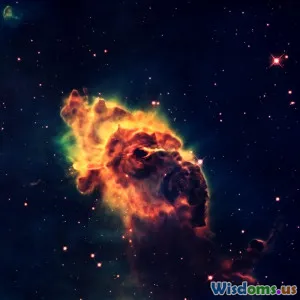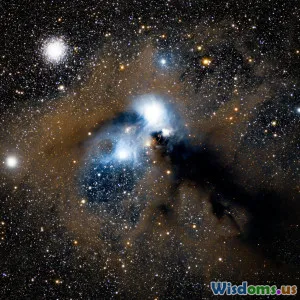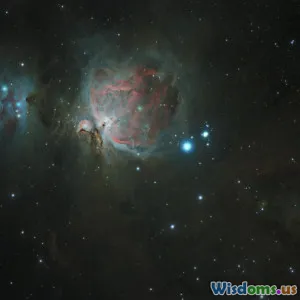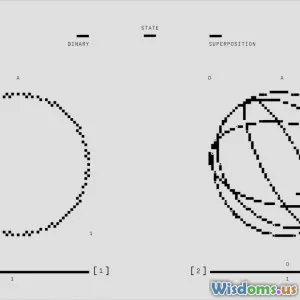
Understanding Existence: Scientific and Spiritual Approaches
9 min read Explore scientific and spiritual perspectives on existence, uncovering profound insights and understanding. (0 Reviews)
Understanding Existence: Scientific and Spiritual Approaches
Introduction
Existence—this simple yet daunting concept encapsulates the entire human experience. It stirs profound curiosity, love, suffering, joy, and myriad other emotions through the pursuit of understanding our place in the cosmos. What does it mean to exist? Human beings have grappled with this essential question for centuries, leading to the development of diverse perspectives from both scientific and spiritual domains. In what follows, we will explore these approaches, providing an engaging backdrop of knowledge, insights, and thought-provoking reflections.
The Scientific Approach to Existence
1. The Cosmos and Our Place in It
The scientific exploration of existence often begins with the universe itself. According to cosmological evidence, the universe originated approximately 13.8 billion years ago in the Big Bang event. Physicists like Stephen Hawking have provided insights into the intricate workings of our cosmos, portraying it as a system governed by the laws of physics. Hawking stated, “The universe doesn’t have a single model but consists of various model descriptions.” This conclusion shows our understanding of existence rests not solely on singular perspectives but rather on multifaceted scientific illuminations.
This exploration has led to questions about black holes, dark matter, and antimatter. One humbling consideration is that Earth is merely a speck in the grandeur of the universe. Out of an estimated 200 billion galaxies, the Milky Way is just one among many. Each discovery raises inquiry into the potential impacts of the universe on human existence—whether through stellar events, evolution, or the interaction of fundamental forces.
2. Understanding Consciousness
Consciousness—the defining aspect of our human experience—merits significant attention in the scientific discourse on existence. Neurologists and psychologists strive to comprehend how subjective experiences arise from neurobiological processes. The hard problem of consciousness, as coined by philosopher David Chalmers, seeks to understand how and why we have experiences at all.
Neuroscience offers a glimpse through explorations of brain activities and structures, mapping correlations between neural impulses and conscious thought. Yet, this reveals only part of the complexity. For example, brain imaging studies demonstrate neural correlates of decision-making, but they don’t explain how awareness and personal experience emerge from them. The interface between cognitive function and conscious experience reveals a continuing riddle that scientists are yet to unlock.
3. Quantum Physics and the Nature of Reality
Quantum mechanics serves as another fascinating avenue for those probing the intricacies of existence. The principle of wave-particle duality challenges conventional perceptions of reality, indicating that particles can exist in multiple states simultaneously until observed.
Physicist Niels Bohr encapsulated this intrigue in his assertion, “An experiment is a question which science poses to Nature.” In unraveling these quantum mysteries, we discover philosophical tensions between determinism and free will, sparking dialogues on existence outside the confines of tangible evidence.
The Spiritual Approach to Existence
1. Ancient Philosophies and Modern Spiritualities
Diving into spiritual understandings of existence opens a vast ocean of beliefs and philosophies. Ancient texts like The Bhagavad Gita and Tao Te Ching address the purpose of human life and existence from remarkable perspectives that often intertwine metaphysical principles with ethics.
For instance, the Buddhist concept of Anatta (non-self) asserts that the self is an illusion, urging followers to pursue personal enlightenment. The Gita speaks of the yoga concept, where existence transcends mere physicality into the realm of spiritual duty and dharma. Each cultural and religious context offers its framework, giving insights into existential concerns from moral, ethical, or magical perspectives.
2. The Role of Intuition and Spiritual Awakening
Intuition is often seen as a guiding light within spiritual frameworks. Many spiritual traditions suggest that existence aligns with an innate sense of what is true and meaningful. This aligns with the idea of spiritual awakening—recognizing one’s connection to something transcendent. People report transformative experiences leading them to reevaluate existence and their purpose within it.
Ayahuasca retreats and meditative practices have garnered increasing popularity as means through which individuals seek direct encounters with their existential selves. A growing body of anecdotal evidence suggests that such experiences may lead to a reaffirmation of personal growth, understanding, and connection to the collective.
3. Interconnectedness of All Life
Underlying many spiritual philosophies is the concept of interconnectedness. Indigenous traditions have long emphasized the intrinsic bond between all forms of life, reminding us that existence extends into realms of compassion and respect for nature.
This interconnected nature is also echoed in scientific discussions around ecosystems and biodiversity. The more we learn from both realms, the closer we come to understanding how our defined existence can thrive in its connected embrace with all that exists, echoing the sentiment that “the whole is greater than the sum of its parts.”
Bridging the Gap: Where Science Meets Spirituality
1. Consciousness as a Common Canvas
One exciting domain where science meets spirituality is the exploration of consciousness and cognition. Both spheres increasingly intersect over dialogues about human experience and how consciousness manifests. Quantum scientists like Deepak Chopra propose models that apply quantum theory to human consciousness, encouraging interdisciplinary dialogue that can lead to a holistic view of existence.
2. Ethical Implications in Both Worlds
Scientific advancements often provoke ethical questions, pushing society towards consideration of moral obligations drawn by awareness. Likewise, spirituality tends to converge on these principles, proposing how we ought to live and exist harmoniously with others. These considerations inform how the community addresses challenges like climate change, compassion initiatives, and sustaining life on Earth.
Conclusion
Understanding existence is a profound journey across scientific inquiry and spiritual exploration. While scientists dissect the universe through data, calculations, and laws, spiritual sages narrate existence as a symphony of interconnected lives and consciousness. Both approaches illuminate aspects of the human experience, including our moral treatment of one another and our environment. Together, they offer kaleidoscopic insights into deep questioning. Ultimately, the quest for understanding existence transcends specific answers— it is a life-enriching exploration urging humanity toward greater awareness and meaning as we endeavor to know ourselves in this vast cosmos.
Rate the Post
User Reviews
Popular Posts




















